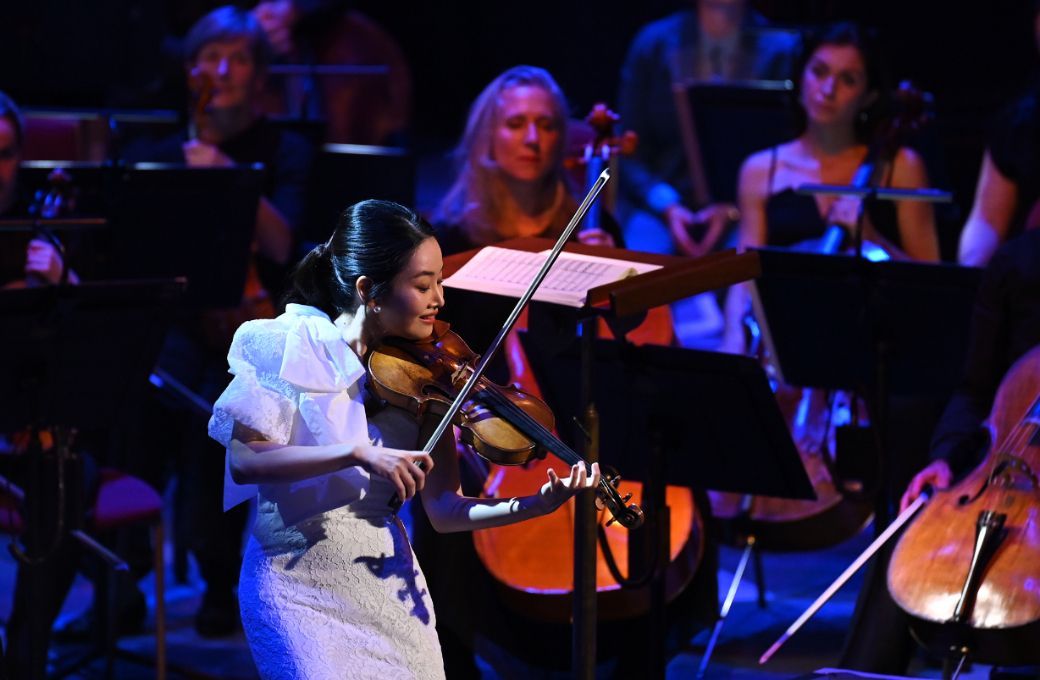Without the act of commissioning we would not have a number of fine works to celebrate. Two such commissions graced this programme given by the BBC Philharmonic, with the conductor, Anja Bihlmaier, and the soloist, Bomsori Kim (known outside her native South Korea simply as Bomsori), both making their Proms debuts.
The first of these commissions was by the man often dubbed the “Black Mahler” or the “African Dvořák”, one Samuel Coleridge-Taylor. If either of these epithets has any deeper meaning, then it is the link to the Bohemian master of lyrical melody. Had it not been for Elgar, Coleridge-Taylor’s Ballade in A minor (the second of three such pieces he wrote) might well have languished on the sidelines. Being too busy with other compositions at the time, Elgar declined a commission by the Three Choirs Festival in 1898 but heartily recommended his younger colleague, declaring that “he is far and away the cleverest fellow going amongst the young act”. It is extraordinary that after being performed regularly at the Proms until 1929 it has had to wait until now for its latest appearance. The BBC Philharmonic showed itself in fine fettle, with supple strings, secure brass and an engaging piquancy to the woodwind all underlining the surges of Romantic feeling. Bihlmaier conducted as though she believed wholeheartedly in every note of the piece.
Bartók’s Concerto for Orchestra is a rather different animal. It too is imbued with rich folksiness from his native Hungary, but as a Boston Symphony commission was designed to show off the qualities of a virtuoso ensemble. It therefore needs not only maximum precision but absolute brilliance in the range of orchestral colour. Bihlmaier stressed the atmosphere, the lyrical softness and the moments of chamber-like intimacy at lower dynamic levels. At times, however, as in the Giuoco delle coppie, the beat became a little too metronomic, the brass flourishes rather too mechanical, with little sense of playfulness or rubato in the phrasing, and an oddly insistent side-drum at the start. Though the BBC Philharmonic played with demonstrable commitment, the dark huskiness in the strings for the central Elegia never really made its mark, and the big melody on the violas early on in the Intermezzo interrotto needed much more warmth. Above all, in the Finale the music must repeatedly seem to bubble over infectiously. Here the contents of the cauldron were always well-contained, the smell of greasepaint and a feeling for overt theatricality strangely absent.

A clear line has to be drawn between the danger of sentimentality and sufficient sweetness of tone in order to allow Bruch’s Violin Concerto no. 1 to truly sparkle, in Joseph Joachim’s words, as “the richest, most seductive” of all the German Romantic concertos. Playing her Guarneri, Bomsori often scaled back its potential to savour a chamber-like intimacy, beginning the concerto in a dark yet withdrawn manner. She was at her best in the central Adagio, where her solo line would emerge seamlessly from the orchestral accompaniment and then retreat almost to a whisper, emphasising the hymn-like qualities of the movement. I was not persuaded, however, by the soft slowness of her approach in the opening Allegro moderato, which was thrown into sharp relief by the full-blooded entries of the orchestra, nor by the spiccato effects she employed in the Finale. Here, her tendency not to give all the notes their full value produced a bounciness at odds with her earlier approach. There was nevertheless no doubting a personal identification in her encore: Bacewicz’ Kaprys polski (Polish Caprice), itself inspired by Polish folk music and the Kujawiak dance in particular.


